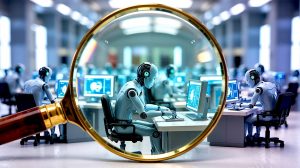From Jeopardy to Cancer Institute: How IBM Watson is Transforming the World
![]() IBM Watson is more than a supercomputer. It is a cognitive system capable of natural language processing, and is able to perform deep natural language processing to make it seem like you are talking to a human, and not just a computer.
IBM Watson is more than a supercomputer. It is a cognitive system capable of natural language processing, and is able to perform deep natural language processing to make it seem like you are talking to a human, and not just a computer.
Watson achieved fame when it beat contestants on the popular game show Jeopardy!, and again when it beat Harvard Business School students in the same game show, taking home $56,33.
But Watson is not just about beating people in mind games, as it has evolved into something that is useful for people.
Meet Dr. Watson
In 2011, WellPoint’s Chief Medical Officer Sam Nussbaum, M.D announced that Watson-based services will be utilized to deliver patient care and diagnosis solutions and reduce costs. The need for something like Watson in the field of healthcare stems from the fact that huge amounts of data are being generated in this field on a daily basis. With more people seeking proper healthcare, industry professionals are finding it hard to keep track of patients’ care plans or give them the right treatment plans. This often leads to costly and unnecessary procedures.
A few months after, it was announced that doctors at the Samuel Oschin Comprehensive Cancer Institute at Cedars Sinai will be utilizing Watson to “comb through patient medical histories, medical journals and clinical trials to provide appropriate treatments,” for cancer patients. The institute was chosen for its reputation in oncology.
So why cancer treatment? Watson CTO, IBM Fellow, and VP Rob High claims that the team wanted to make a difference. With all the changes and challenges arising in the field of cancer research, Watson will be able to quickly access the latest researchers and experimental trials, all in the hopes of improving patient outcome.
Professor Watson
Watson is also being utilized as a teaching tool. At the Cleveland Clinic, the IBM Research team is using Watson to gather information as to how medical students learn as well as see how Watson reaches its conclusions. High claims that this “helps students understand the patterns and strategies for how Watson learns things that they might also use. And that’s reciprocal – Watson’s also learning from the students.”
The most recent medical achievement for Watson is its stint at the Memorial Sloan-Kettering Cancer Center to treat lung and breast cancer patients as well as streamline treatment preauthorizations at WellPoint. Dr. Nussbaum predicts that Watson could eliminate or greatly reduce waiting time for patients as physicians will be more effective in handling patients. He states that right now, only 12 percent of a doctor’s time is actually spent on a patient. The rest of the time is spent dealing with paperwork and medical billing like WellPoint, particularly in obtaining preauthorizations for the treatments.
If Dr. Nussbaum’s predictions are correct, Watson could become a vital piece of medical tool for every hospital or clinic. More people will be given medical treatment faster, and more positive outcomes would result in this.
A message from John Furrier, co-founder of SiliconANGLE:
Your vote of support is important to us and it helps us keep the content FREE.
One click below supports our mission to provide free, deep, and relevant content.
Join our community on YouTube
Join the community that includes more than 15,000 #CubeAlumni experts, including Amazon.com CEO Andy Jassy, Dell Technologies founder and CEO Michael Dell, Intel CEO Pat Gelsinger, and many more luminaries and experts.
THANK YOU

















